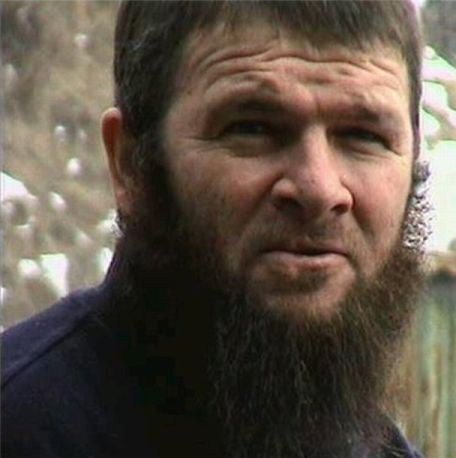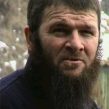
Dokka Umarov Starts to Show His Teeth
Publication: North Caucasus Weekly Volume: 8 Issue: 32
By:

The past month has undoubtedly been one of Dokka Umarov’s fiercest and most productive since he assumed command of the resistance movement. Day after day in July and early August, reports from the North Caucasus have been reminiscent of a chronicle of war.
There is only one difference. Whereas in the past, military operations took place in Chechnya, and the heat of battle was experienced in light of the Chechen resistance movement, today, Dagestan and Ingushetia have emerged onto center-stage. In these two regions, armed groups have become so active that they have begun to threaten Russia’s plans for the pacification of the Caucasus.
The policies of Moscow’s protégés in the regional governments of the North Caucasus have also changed: one after another, they have begun to duplicate a crude version of Ramzan Kadyrov’s policies by attempting to conceal various incidents involving shootings or armed attacks. In Chechnya, a similar tactic has been practiced for ages, whereby it is permitted to talk about successes, but certainly not permitted to mention the daily armed attacks and shootings throughout the republic. Currently, such cover-ups are taking place in other republics as well. For example, in Ingushetia, the government attempted to cover up a gunfire attack on the motorcade of President Murad Zyazikov, which took place on July 21 in Magas.
In response, the authorities have begun to attack residents suspected of being sympathetic to the guerrillas. One example of such retaliation is the killing of a young resident of Ingushetia, Magomed Barkinkhkhoev, who appears to have been killed by Kadyrov’s security forces. Barkinkhkhoev was abducted by unknown assailants shortly after leaving a mosque in the center of the village of Ordzhonikidzevskaya, Ingushetia, on July 27. Nothing was known of his fate until his body was found in the Urus-martanovskii district of Chechnya on August 1. Chechen law enforcement officials issued a statement claiming that Barkinkhkhoev was a guerrilla and had been shot while resisting arrest.
The official version of the events, however, is highly implausible, for several reasons. First, a few minutes before his abduction, Barkinkhkhoev found time to make a telephone call and said that he was going straight home, which does not seem very consistent with the report that he was preparing for an imminent armed confrontation. The young man’s relatives believe that he was arrested by Kadyrov’s security forces on a tip-off and then driven into Chechnya. It seems likely that the police later killed Barkinkhkhoev in order to cover up the incident once they realized that he was innocent. In addition, there is also the fact that Barkinkhkhoev’s body was found in Chechnya, not Ingushetia, where he was last seen. This sequence of events suggests that Kadyrov’s forces now feel empowered to abduct and eliminate people not just in Chechnya, but also in the neighboring republics.
Following this incident, the President of Ingushetia, Murad Zyazikov, made no effort to improve the situation by carrying out major changes in his policies. Instead, he decided to improve his image by a propaganda blitz featuring daily reports on television and in the press in praise of the President of Ingushetia. In recent days, steps have also been taken to close the only independent internet publication, www.ingushetiya.ru [1].
Further measures have been taken to give the appearance of vigorous action being taken against radical groups. In early August, a Makhachkala Islamic goods shop was closed on the grounds that it was selling Islamist literature [2]. Closing shops that sell Islamist literature is the authorities’ favorite method of fighting extremism, and such shop closings are ordered several times each year. Yet it is far from clear that these measures really affect the distribution of anti-state literature. For example, a book by Magomed Kebedov attacking Sufism was published in Moscow last year and is now on sale in Moscow’s bookshops and in mosques in other parts of Russia. Kebedov is considered to be the spiritual leader of Dagestan’s Salafists. Indeed, in 1999, he became the head of the Islamist de facto state in Dagestan. Since then, he has been placed on Interpol’s wanted list. The fact that a book by such a figure is now openly available in the Russian capital shows the limits of the authorities’ power in controlling the flow of information and in particular the weakness of shop closings as a counter-insurgency measure.
Against this background, the authorities in the North Caucasus are themselves increasingly divided. In particular, relations between the President of Dagestan, Mukhu Aliev, and the republic’s Minister of the Interior, Adilgerei Magomedtagirov, have now taken the form of an open conflict. The tension between them results from the fact that Magomedtagirov was appointed by President Putin in order to serve as a kind of counterweight to the local strongman, Aliev. Now, public outrage at a wave of kidnappings has given Aliev an opportunity to undermine Magomedtagirov. Kidnappings committed by men in camouflage (believed to be members of the security forces) have recently become a serious problem for the republic. For example, whereas in 2002, there were 81 such incidents recorded, in 2006, more than 150 were registered. By the end of last month, a total of 71 reports of abductions had been filed since the beginning of 2007 (RIA Dagestan, August 1). Human rights organizations and the NGO “Mothers of Dagestan” are now demanding the resignation of the republic’s Minister of Interior on the grounds that he is responsible for this situation (Kavkaz.memo.ru, August 6). Mukhu Aliev has attempted to turn this public anger to his own advantage by using it against Magomedtagirov. In his most recent statement, Aliev demanded an investigation into the murder of numerous members of the security forces.
In addition, there is now speculation that Dokka Umarov himself could turn up in Grozny. The report by an information agency linked to the Chechen opposition that Umarov had actually been in Grozny is undoubtedly a well-organized propaganda exercise. It is hard to verify this incident, however, and the very fact that Chechens already think that Umarov could visit Grozny, and even “meet and talk to” residents of the capital, is itself a breakthrough for Umarov [3]. In fact, Umarov could visit Grozny without difficulty. He does not need to make any particular arrangements for this purpose since he grew up there, knows every neighborhood and undoubtedly has widespread support there. This support does not only come from guerrillas, but also from all who support Chechnya’s independence from Russia. If anything, finding supporters is easier in the capital than in some mountain village, where outsiders are more conspicuous and where local residents by and large are less politically engaged in the Russo-Chechen conflict.
In short, Dokka Umarov has managed to do what has been impossible since the death of Shamil Basaev: to take overall command of the resistance movement throughout all the republics of the North Caucasus. Thus, the stage appears to be set for an escalation of military conflict in the region. There are indications that such an escalation is now beginning. On August 5, Chechen resistance fighters attacked the village of Tsa-Vedeno and burned down three houses belonging to security officials of the pro-Moscow government. The attack on Tsa-Vedeno and the reaction of the pro-Moscow government indicate that Dokku Umarov is now playing a game that does not fit at all with Moscow’s numerous claims concerning the alleged pacification of Chechnya.
Moscow’s own behavior suggests the Kremlin shares this view. The large-scale military exercises being conducted in the North Caucasus are officially explained as part of the preparations for the Sochi Olympic Games in 2014. However, this story seems unlikely, since after all, the Sochi Olympics will not take place for several more years. Rather, the goal of these exercises is to prepare for a possible expansion of military operations in the North Caucasus. The base in Botlikh and reports of the construction of a training base immediately outside the village of Makahzoi (Cheberloveskii district, Chechnya) demonstrate just how necessary it is for Russia to constantly increase its forces in this region (Groanyi-inform, July 26).
Today, Dokka Umarov has the imperative to show that the resistance movement is still active and can strike at the most inconvenient moment for the Russian government. This is because Umarov’s main weakness is his own lack of military successes during his two years of leadership, which stands in marked contrast to the victories his own subordinates have racked up in neighboring republics. Now, Umarov needs to reassert his authority with military successes of his own. The question is where such attacks are most likely to take place. The appointment of Amir Magas as the commander of all armed forces in Chechnya is not an indication that Magas himself will conduct a military attack in Chechnya. Ingushetia, Ossetia and Kabardino-Balkaria are much more familiar terrain for Magas, who is Ingush and was formerly the commander of the Ingush jamaat. It is most likely that Magas will try to stage attacks in these republics. Thus, Dokka Umarov has only one option, which is to organize an escalation by the fighting groups in Chechnya itself, in order to gain authority at the expense of the Chechen leaders and the jamaats located within Chechnya.
In light of these developments, Ramzan Kadyrov’s claim that he will destroy all Chechen resistance movements by the end of the year is nothing but a propaganda move in the run-up to the Russian presidential election of 2008 (RIA Novosti, August 3). All that is certain is that the Chechen resistance forces will also try to give some kind of “gift. Ultimately, what kind of gift it will be is up to Dokka Umarov.
Notes
1. Address by leading officials of Ingushetia concerning the need to close the Internet site, ingushetiya.ru; reported in Ingushetia and Serdalo newspapers, August 7, 2007.
2. Closing of the Islamic goods store “Sunna” in Makhachkala; report on Kavkaz.memo.ru, August 4, 2007.
3. There has been no confirmation of this visit from independent sources. The source of my information is Kavkaztsentr, August 6, 2007.




